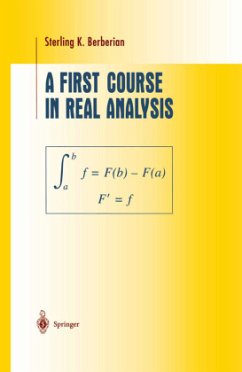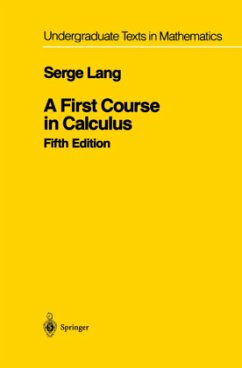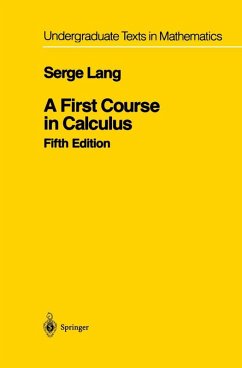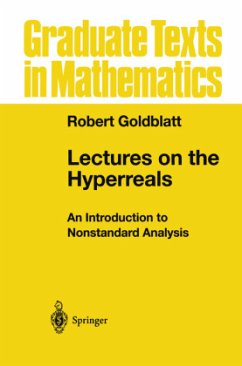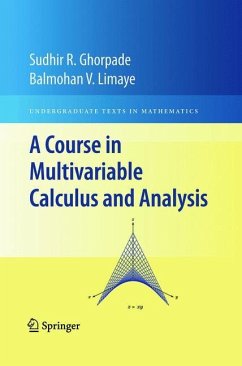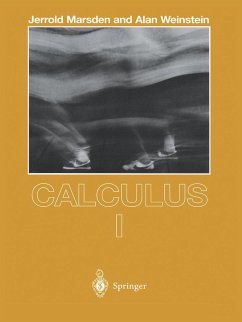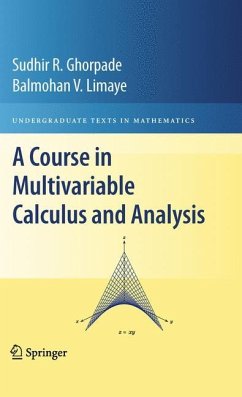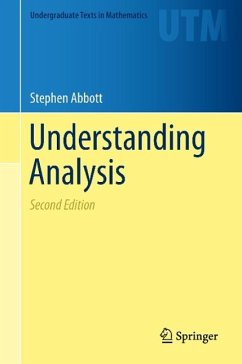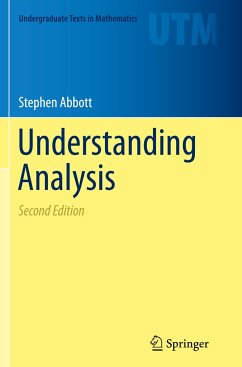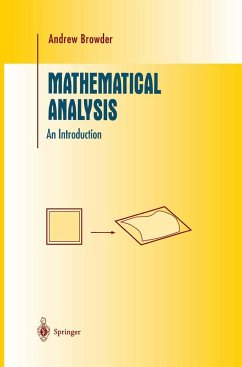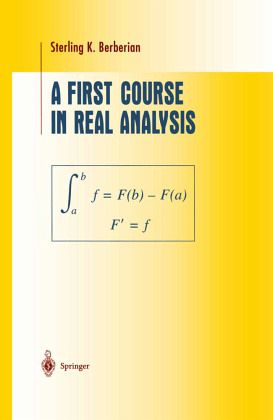
A First Course in Real Analysis
Versandkostenfrei!
Versandfertig in 1-2 Wochen
38,99 €
inkl. MwSt.
Weitere Ausgaben:

PAYBACK Punkte
19 °P sammeln!
The book offers an initiation into mathematical reasoning, and into the mathematician's mind-set and reflexes. Specifically, the fundamental operations of calculus--differentiation and integration of functions and the summation of infinite series--are built, with logical continuity (i.e., "rigor"), starting from the real number system. The first chapter sets down precise axioms for the real number system, from which all else is derived using the logical tools summarized in an Appendix. The discussion of the "fundamental theorem of calculus," the focal point of the book, especially thorough. The concluding chapter establishes a significant beachhead in the theory of the Lebesgue integral by elementary means.
Mathematics is the music of science, and real analysis is the Bach of mathematics. There are many other foolish things I could say about the subject of this book, but the foregoing will give the reader an idea of where my heart lies. The present book was written to support a first course in real analysis, normally taken after a year of elementary calculus. Real analysis is, roughly speaking, the modern setting for Calculus, "real" alluding to the field of real numbers that underlies it all. At center stage are functions, defined and taking values in sets of real numbers or in sets (the plane, 3-space, etc.) readily derived from the real numbers; a first course in real analysis traditionally places the emphasis on real-valued functions defined on sets of real numbers. The agenda for the course: (1) start with the axioms for the field ofreal numbers, (2) build, in one semester and with appropriate rigor, the foun dations of calculus (including the "Fundamental Theorem"), and, alongtheway, (3) develop those skills and attitudes that enable us to continue learning mathematics on our own. Three decades of experience with the exercise have not diminished my astonishment that it can be done.



